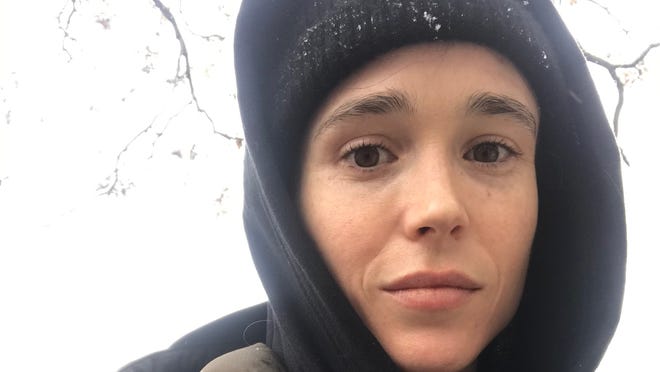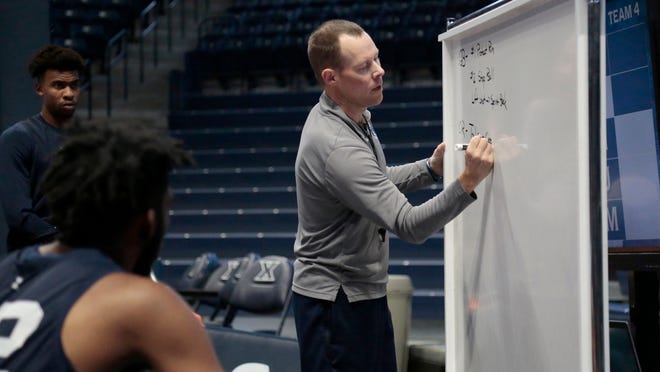
District attorneys representing five of Texas' largest counties on Wednesday said they will not treat gender-affirming procedures for transgender youth as "child abuse," defying a push by the state's attorney general and governor to target the medical treatments.
The news comes a day after an order from Gov. Greg Abbott mandated the state's child welfare agency treat gender-affirming procedures as "child abuse," a move with potential legal consequences for both parents of transgender youth and any teacher or other authority figure who interacts with a trans child.
The district attorneys said they believe Gov. Abbott's order — and the legal opinion by Attorney General Ken Paxton on which the order is based — constitute "an egregious invasion of privacy."
"We will enforce the Constitution and will not irrationally and unjustifiably interfere with medical decisions made between children, their parents, and their medical physicians," said district attorneys representing more than 5 million people, including those in the cities of Dallas, Austin, San Antonio, Sugar Land and Corpus Christi.
Will parents of transgender kids be investigated in Texas?:Governor's order sparks fear, uncertainty
Despite the DAs' statement, the state's child welfare agency will still be free to follow Abbott's directive and launch investigations related to gender-affirming care. But the agency would need to prove its case to a judge who is not bound by Abbott or Paxton's directives, according to the American Civil Liberties Union.
But in the five counties represented by the DAs, criminal prosecutions won't be allowed to go forward against parents of trans youth who have received gender-affirming care.
The DAs' position also addresses a major fear from LGBTQ advocates and families: That mandatory reporters of abuse — such as teachers, nurses and therapists, who can face criminal charges for failing to report — may feel pressure to report parents of transgender children or else face possible criminal penalties.
The DAs say that criminal prosecution for failing to report the medical care of transgender children won't happen in their jurisdiction.
"We trust the judgment of our state's medical professionals, who dedicate themselves to providing the highest degree of care not only for our transgender youth, but for all youth in our communities," their statement reads. "We want to assure our residents with transgender children that they are safe to continue seeking the care their children need."
Miriam Aroni Krinsky — a former federal prosecutor and the executive director of Fair and Just Prosecution — said DAs consider constitutional rights and "their community’s best interests" when making charging decisions.
"These five district attorneys have stood up and stated unequivocally that they will enforce the Constitution and that pursuing anti-trans prosecutions is not in the community’s best interest," she said in an emailed statement on Thursday.
At attorney who represents DFPS in Harris County has also taken to social media to say he will not follow Paxton's legal opinion while conducting child abuse cases.
Abbott's order has created a confusing and murky legal question because it is based on an attorney general's legal opinion, which does not carry the weight of law.
"In the immediate legal sense, this doesn’t change anything," Chase Strangio, a director for transgender justice at the American Civil Liberties Union told USA TODAY. "... There are laws in place that separately protect parents through any sort of proceeding. So in terms of whether this means that every parent of a trans kid is going to be investigated immediately, no, it doesn’t (mean that)."
BACKGROUND:Texas governor orders state agency to treat gender-affirming care as child abuse
WATCH:White House denounces Florida's 'Don't Say Gay' bill as 'harmful'
Political rhetoric surrounding anti-trans legislation in Texas has increased in recent months. Abbott's order comes after the state legislature failed to pass bills that would ban gender-affirming care.
The mental toll of political attacks made against trans youth is significant, said Stephen Russell, a professor of child development at the University of Texas specializing in LGBTQ youth.
Trans kids in Texas "probably already knew they were in a state where there’s political discourse that questions their worth as a person and this just ramps it up," Russell said.
Individuals holding positions of power over transgender children and their families now also have additional ability to exert control in their daily lives, Strangio said.
"People can use threats of reporting to use their power over other people, whether in the workplace or in the hospital, in housing contexts," he said. "I think that it does give people an ability to use their power over others and that can be really scary, even if you never end up with an investigation from DFPS.”
He also said he believes children in Texas who are already part of the child welfare system could face the most serious consequences of Abbott's directive.
"The families who are already involved in the child welfare system in one way or another, will they have extra scrutiny?”








